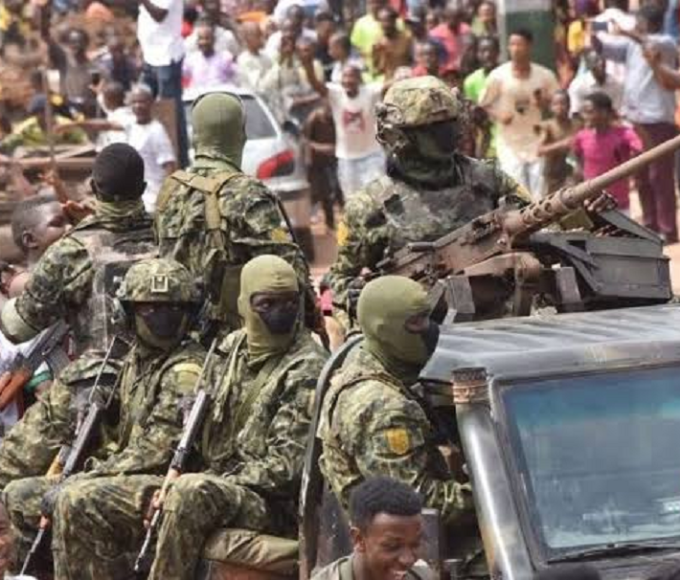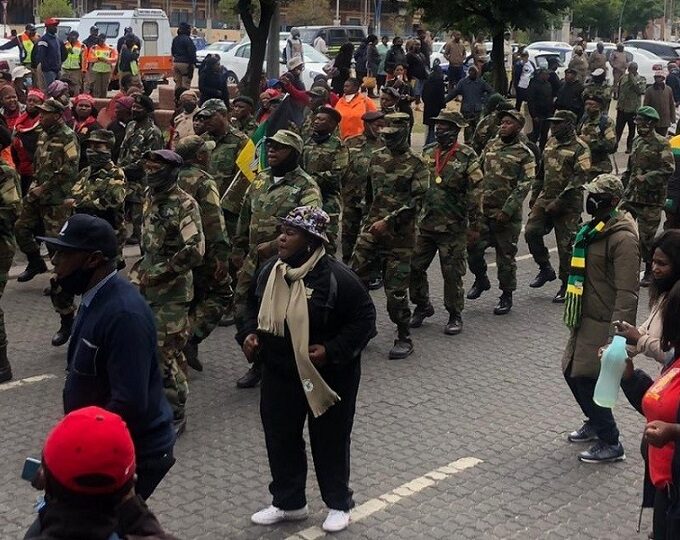The State of Veteran Welfare in Africa
There is no continent-wide veterans policy. National approaches vary widely in scope, funding, and legal backing. While some countries have standalone Veterans Acts or Ministries for Military Veterans, others rely on ad hoc disbursements from defence budgets.

Behind every service medal lies a human being—trained, tested, and often traumatised. Yet across much of Africa, the welfare of military veterans remains underdeveloped, inconsistent, and politically marginalised. From pension arrears to broken medical systems, African ex-servicemen and women often find themselves fighting a new kind of war—against institutional neglect and societal amnesia.
This article evaluates the current state of veteran welfare across Africa, analysing pension structures, access to healthcare, and public honour systems. It also highlights promising reforms and persistent gaps that governments and regional institutions must address.
Uneven and Underfunded: The Pension Crisis
Pensions form the bedrock of military retirement, yet across the continent, they are often delayed, insufficient, or simply non-existent for many veterans.
According to data from the African Union’s Continental Strategy on Defence and Security, only 12 African countries maintain consistently funded, state-managed veteran pension schemes. Even within those systems, problems abound:
• Nigeria: Despite creating the Military Pensions Board, retired soldiers routinely protest delays, discrepancies in payment, and poor transparency.
• Kenya: Veterans under the Department of Defence Civil Servants Scheme complain of stagnant pension rates despite inflation.
• Zimbabwe: Hyperinflation has eroded pension values, forcing some veterans to rely on remittances or informal work to survive.
• DR Congo and South Sudan: Large numbers of veterans remain unregistered or demobilised without entitlement to pension schemes.
These structural deficiencies have created a class of elderly ex-combatants, many of whom live in poverty and suffer from untreated war injuries or disabilities.
Health Care Gaps: Physical and Psychological Toll
Healthcare is a pillar of welfare—but it remains deeply inadequate for many African veterans. War wounds, stress disorders, and service-related illnesses frequently go untreated.
Key challenges include:
• Lack of specialised military hospitals for veterans
• Poor mental health support—especially for PTSD, substance abuse, and suicide prevention
• Discrimination at civilian health centres
• No transport or subsidies for treatment access in rural areas
A 2022 study by the Veterans Health Observatory (Africa) found that only 18% of surveyed veterans in West and Central Africa had access to dedicated veteran healthcare services.
In Rwanda, efforts have been made to integrate post-traumatic care through military hospitals, while Ghana’s 37 Military Hospital remains one of the few facilities with a veterans outreach unit. However, these are exceptions, not the norm.
Honour and Dignity: Beyond Medals and Marches
Recognition is a key component of post-service welfare. While pensions and healthcare sustain the body, honour sustains the spirit. Unfortunately, many African veterans feel discarded after their service ends.
Symbolic neglect includes:
• Lack of remembrance days or public honours for veterans
• No official title or status post-retirement
• Disconnection from national narratives of pride or history
Countries such as South Africa, which celebrates Veterans Day on November 11, and Uganda, with its UPDF Veterans Recognition Programme, are making steps to institutionalise honour. Others have launched military museums, wall of fame projects, and formal burial entitlements. But for many, these remain aspirational.
Women Veterans: Double Marginalisation
Female veterans—especially those who served in peacekeeping, logistics, or intelligence—face unique obstacles. Their welfare concerns often fall through the cracks due to gendered policy frameworks.
Many women report:
• Stigma or disbelief about their military status
• Lack of access to gender-sensitive healthcare
• Higher levels of post-service unemployment
• Exclusion from male-dominated veteran associations
Few countries have dedicated programmes for women veterans, although Ghana, Rwanda, and Senegal are exploring policies that integrate gender equality into veteran services.
Policy Landscape:
A Patchwork of Promises
There is no continent-wide veterans policy. National approaches vary widely in scope, funding, and legal backing. While some countries have standalone Veterans Acts or Ministries for Military Veterans, others rely on ad hoc disbursements from defence budgets.
African countries with dedicated veterans institutions include:
• South Africa: Department of Military Veterans
• Ghana: Veterans Administration Ghana (VAG)
• Uganda: Directorate of Veterans Affairs (Ministry of Defence)
• Nigeria: Military Pensions Board + Veterans Federation of Nigeria
However, most of these institutions are under-resourced, politicised, or narrowly focused on pension distribution rather than holistic welfare.
Recommendations: A New Contract with Those Who Served
1. National Veteran Policy Frameworks – All African states should establish clear legislation defining veteran status, benefits, and entitlements.
2. Health Coverage Mandates – Veterans should be guaranteed access to free or subsidised care, with mental health as a priority.
3. Pension Transparency Mechanisms – Digital payment systems and real-time grievance platforms should be standardised.
4. Veteran ID Cards and Service Records – Essential for accessing services, discounts, or legal protection.
5. National Days of Remembrance – Institutionalise honour through public recognition and civic ceremonies.
6. Continental Dialogue – The AU Peace and Security Council and ECOWAS should facilitate knowledge-sharing and regional best practices.
Conclusion: Honour Beyond the Uniform
Veteran welfare is not charity—it is a social contract of gratitude and justice. Those who bore arms in defence of sovereignty deserve more than faded uniforms and forgotten promises. They deserve pensions that arrive on time, hospitals that welcome them, and nations that honour them in deed and not just word.
As Africa faces new security challenges, it must not ignore those who safeguarded its past. Investing in veteran welfare is not just moral—it is strategic. A country that honours its protectors today strengthens its defenders of tomorrow.
Veteran Welfare Snapshot (2023–2024):
• Countries with national veteran policies: 12
• % of veterans with access to free healthcare: <25%
• Countries with military-specific hospitals: 8
• Number of African veterans living below the poverty line: Est. 1.2 million+
• Countries with formal female veteran welfare frameworks: Under 5
Recent Posts
Categories
- Air & Aerospace17
- Border Security15
- Civil Security6
- Civil Wars4
- Crisis5
- Cyber Security8
- Defense24
- Diplomacy19
- Entrepreneurship1
- Events5
- Global Security Watch6
- Industry8
- Land & Army9
- Leadership & Training5
- Military Aviation7
- Military History27
- Military Speeches1
- More1
- Naval & Maritime9
- Policies1
- Resources2
- Security12
- Special Forces2
- Systems And Technology9
- Tech6
- Uncategorized6
- UNSC1
- Veterans7
- Women in Defence9
Related Articles
AFRICAN VETERANS IN POLITICS: INFLUENCE AND CONTROVERSIES
Across Africa, veterans of liberation wars have played a central role in...
ByKing Richard Igimoh, Group Editor ALOJanuary 27, 2026VETERANS – PENSION REFORM AND THE WELFARE OF AFRICAN MILITARY VETERANS
Across Africa, military veterans embody the sacrifices made for national liberation and...
ByKing Richard Igimoh, Group Editor ALOOctober 29, 2025Honouring Legacy: Military Museums and Memorials Across Africa
Africa’s military history is rich, complex, and often untold. From pre-colonial warrior...
Byadmag_adminJune 26, 2025From Combat to Civil Service: Veterans Transitioning into National Leadership
Across Africa, a quiet but significant transformation is underway: former soldiers are...
Byadmag_adminJune 26, 2025













